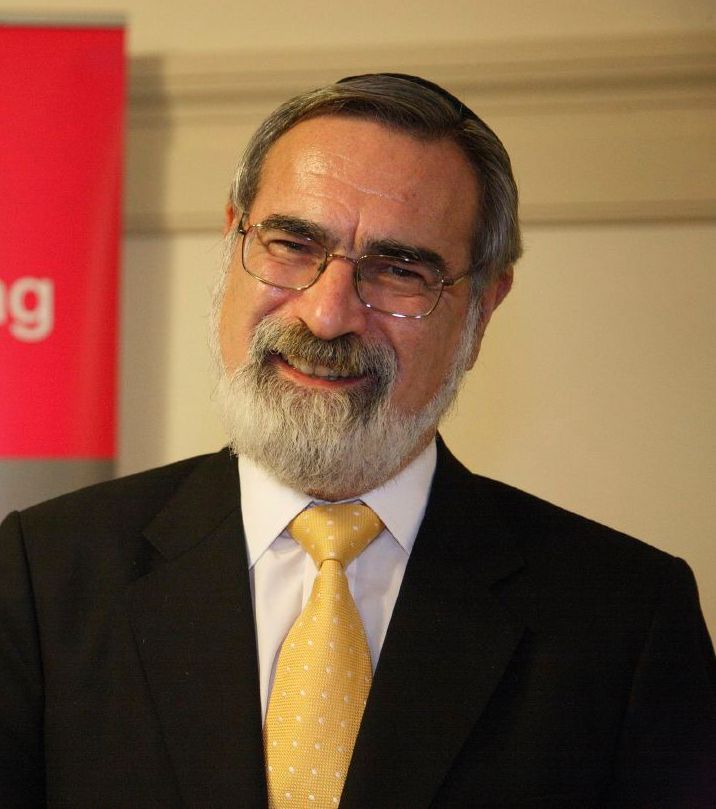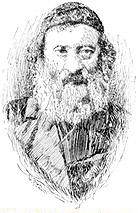|
Jewish Vegetarianism
Jewish vegetarianism is a commitment to vegetarianism that is connected to Judaism, Jewish ethics or Jewish identity. Jewish vegetarians often cite Jewish principles regarding Jewish ethics#Treatment of animals, animal welfare, Jewish ethics#Environmental ethics, environmental ethics, moral character, and Jewish ethics#Health and self-respect, health as reasons for adopting a vegetarian or vegan diet. In pre-modern times Vegetarianism was not traditionally a component of mainstream pre-modern Judaism, though the Kashrut#Laws of Kashrut, laws of kashrut limit consumption of certain animals or their products, with precise requirements for how animals are to be sacrificed and slaughtered (''shechita''). According to Rabbis Shlomo Ephraim Luntschitz and Abraham Isaac Kook the complexity of these laws was intended to discourage the consumption of meat. ''Kashrut'' may also be designed to discourage killing living beings.Kalechofsky, Roberta. ''Rabbis and Vegetarianism: An Evolving T ... [...More Info...] [...Related Items...] OR: [Wikipedia] [Google] [Baidu] |
Vegetarianism
Vegetarianism is the practice of abstaining from the consumption of meat (red meat, poultry, seafood, insects, and the flesh of any other animal). It may also include abstaining from eating all by-products of animal slaughter. Vegetarianism may be adopted for various reasons. Many people object to eating meat out of respect for sentient animal life. Such ethical motivations have been codified under various religious beliefs as well as animal rights advocacy. Other motivations for vegetarianism are health-related, political, environmental, cultural, aesthetic, economic, taste-related, or relate to other personal preferences. There are many variations of the vegetarian diet: an ovo-lacto vegetarian diet includes both eggs and dairy products, an ovo-vegetarian diet includes eggs but not dairy products, and a lacto-vegetarian diet includes dairy products but not eggs. As the strictest of vegetarian diets, a vegan diet excludes all animal products, and can be accompanied by absten ... [...More Info...] [...Related Items...] OR: [Wikipedia] [Google] [Baidu] |
Ohio
Ohio () is a state in the Midwestern region of the United States. Of the fifty U.S. states, it is the 34th-largest by area, and with a population of nearly 11.8 million, is the seventh-most populous and tenth-most densely populated. The state's capital and largest city is Columbus, with the Columbus metro area, Greater Cincinnati, and Greater Cleveland being the largest metropolitan areas. Ohio is bordered by Lake Erie to the north, Pennsylvania to the east, West Virginia to the southeast, Kentucky to the southwest, Indiana to the west, and Michigan to the northwest. Ohio is historically known as the "Buckeye State" after its Ohio buckeye trees, and Ohioans are also known as "Buckeyes". Its state flag is the only non-rectangular flag of all the U.S. states. Ohio takes its name from the Ohio River, which in turn originated from the Seneca word ''ohiːyo'', meaning "good river", "great river", or "large creek". The state arose from the lands west of the Appalachian Mountai ... [...More Info...] [...Related Items...] OR: [Wikipedia] [Google] [Baidu] |
Asher Ben Meshullam
Rabbeinu Asher ben Meshullam was a Jewish theologian and Talmudic scholar who lived at Lunel in the second half of the 12th century CE.Oxford Dictionary of the Jewish Religion - Page 74) A renowned Talmudist, he was a son of the well-known R' Meshullam ben Jacob ''(Rabbeinu Meshullam ha-Gadol)'', and a pupil of R' Joseph ibn Plat and the Raavad. He shared Raavad's ascetic tendencies. Benjamin of Tudela, in the first part of his "Travels," says that R' Asher lived in complete seclusion, wholly devoted to the study of the Torah, and that he never tasted meat. At the same time R' Asher was not hostile to philosophy. R' Yehudah Ibn Tibbon, in a letter to R' Asher, praised his fondness for science, and in his testament exhorted his son to cultivate R' Asher's friendship. R' Asher's alleged leaning towards kabbalah, mentioned by Heinrich Graetz, is unproven. The fact that he was responsible for the translation of Solomon ibn Gabirol's ''Tikkun Middot haNefesh'' is no proof for or ... [...More Info...] [...Related Items...] OR: [Wikipedia] [Google] [Baidu] |
Animal Welfare
Animal welfare is the well-being of non-human animals. Formal standards of animal welfare vary between contexts, but are debated mostly by animal welfare groups, legislators, and academics. Animal welfare science uses measures such as longevity, disease, immunosuppression, behavior, physiology, and reproduction, although there is debate about which of these best indicate animal welfare. Respect for animal welfare is often based on the belief that nonhuman animals are sentient and that consideration should be given to their well-being or suffering, especially when they are under the care of humans. These concerns can include how animals are slaughtered for food, how they are used in scientific research, how they are kept (as pets, in zoos, farms, circuses, etc.), and how human activities affect the welfare and survival of wild species. There are two forms of criticism of the concept of animal welfare, coming from diametrically opposite positions. One view, held by some think ... [...More Info...] [...Related Items...] OR: [Wikipedia] [Google] [Baidu] |
Isaac Arama
Isaac ben Moses Arama ( 1420 – 1494) was a Spanish rabbi and author. He was at first principal of a rabbinical academy at Zamora (probably his birthplace); then he received a call as rabbi and preacher from the community at Tarragona, and later from that of Fraga in Aragon. He officiated finally in Calatayud as rabbi and head of the Talmudical academy. Upon the expulsion of the Jews in 1492, Arama settled in Naples, where he died in 1494. Writings and thought Arama is the author of ''Aḳedat Yitzchaḳ'' (''Binding of Isaac''),Reprinted in, e.g., Yitzchak Arama. ''Akeydat Yitzchak: Commentary of Rabbi Yitzchak Arama on the Torah''. Translated and condensed by Eliyahu Munk. 2 volumes. New York, Lambda Publishers, 2001. . a lengthy philosophical commentary on the Pentateuch, homiletic in style. From this work he is frequently spoken of as the "Ba'al 'Aḳedah" (author of the ''Aḳedah''). He also wrote a commentary upon the Five Scrolls, and a work called ''Ḥazut Ḳashah'' ('' ... [...More Info...] [...Related Items...] OR: [Wikipedia] [Google] [Baidu] |
Joseph Albo
Joseph Albo ( he, יוסף אלבו; c. 1380–1444) was a Jewish philosopher and rabbi who lived in Spain during the fifteenth century, known chiefly as the author of ''Sefer ha-Ikkarim'' ("Book of Principles"), the classic work on the fundamentals of Judaism. Biography Albo's birthplace is generally assumed to be Monreal del Campo, a town in Aragon. This is based on Astruc ha-Levi's report of the religious debate held at Tortosa in 1413-14, which mentions Albo as one of the Jewish participants and notes he was the delegate of the congregation of Monreal. However, the Latin account of this debate makes no reference to this locality. Heinrich Graetz believes that Albo could not have been less than thirty years of age when he was sent to take part in the disputation, and he accordingly places the date of Albo's birth not later than 1380. His date of death is given variously as 1444 (most likely) or 1430. He is mentioned, however, as preaching at Soria in 1433. The use Albo make ... [...More Info...] [...Related Items...] OR: [Wikipedia] [Google] [Baidu] |
Karaite Judaism
Karaite Judaism () or Karaism (, sometimes spelt Karaitism (; ''Yahadut Qara'it''); also spelt Qaraite Judaism, Qaraism or Qaraitism) is a Jewish religious movement characterized by the recognition of the written Torah alone as its supreme authority in ''halakha'' (Jewish religious law) and theology. Karaites believe that all of the divine commandments which were handed down to Moses by God were recorded in the written Torah without any additional Oral Law or explanation. Unlike mainstream Rabbinic Judaism, which considers the Oral Torah, codified in the Talmud and subsequent works, to be authoritative interpretations of the Torah, Karaite Jews do not believe that the written collections of the oral tradition in the Midrash or the Talmud are binding. When they read the Torah, Karaites strive to adhere to the plain or most obvious meaning (''peshat'') of the text; this is not necessarily the literal meaning of the text, instead, it is the meaning of the text that would have be ... [...More Info...] [...Related Items...] OR: [Wikipedia] [Google] [Baidu] |
Malbim
Meir Leibush ben Yehiel Michel Wisser (March 7, 1809 – September 18, 1879), better known as the Malbim ( he, מלבי"ם), was a rabbi, master of Hebrew grammar, and Bible commentator. The name ''Malbim'' was derived from the Hebrew initials of his name. He used this acronym as his surname in all his published works, and became known by it in common usage. His writings do not include works about Kohelet or Eicha. Biography Malbim was born in Volochysk, Volhynia to Yehiel Michel Wisser. His father educated him in Hebrew and the Talmud. After being orphaned as a child, Meïr was cared for and educated by his stepfather, Rabbi Leib of Volochysk. At the age of 13, he went to study in Warsaw where he became known as "the Illui from Volhynia." At age fourteen he married but shortly thereafter divorced. The Malbim showed talent from his early childhood, and his works indicate that he had a considerable knowledge of secular sciences and history. From 1838 to 1845 he served as rabbi ... [...More Info...] [...Related Items...] OR: [Wikipedia] [Google] [Baidu] |
David Altschuler
Rabbi David Altschuler of Prague (1687-1769) was a List of biblical commentaries, biblical commentator and the author of a classic commentary, known as the ''Metzudot'', to the Hebrew Bible's Nevi'im and Ketuvim. Altshchuler is also known as the ''Baal Metzudot'', "Master or Author of the Metzudot." Biography Altschuler was born in Yavoriv in western Galicia (Eastern Europe), Galicia. His family had its origins in Portugal, but were forced to leave with the Persecution of Jews and Muslims by Manuel I of Portugal, expulsion of Jews from Portugal. It is reported that upon reaching Prague they built a synagogue using stones from the old Portuguese synagogues they had left, and therefore the family name became Altschuler ("of the old synagogue"). According to other reports, the family origin was in Provence. In the year 5486 (1725-1726) he is recorded as serving as a rabbi or judge of Yavoriv. Apparently, after this he served as rabbi of Prague, as did other members of his family. H ... [...More Info...] [...Related Items...] OR: [Wikipedia] [Google] [Baidu] |
Kosher
(also or , ) is a set of dietary laws dealing with the foods that Jewish people are permitted to eat and how those foods must be prepared according to Jewish law. Food that may be consumed is deemed kosher ( in English, yi, כּשר), from the Ashkenazic pronunciation (KUHsher) of the Hebrew (), meaning "fit" (in this context: "fit for consumption"). Although the details of the laws of are numerous and complex, they rest on a few basic principles: * Only certain types of mammals, birds and fish meeting specific criteria are kosher; the consumption of the flesh of any animals that do not meet these criteria, such as pork, frogs, and shellfish, is forbidden. * Kosher mammals and birds must be slaughtered according to a process known as ; blood may never be consumed and must be removed from meat by a process of salting and soaking in water for the meat to be permissible for use. * Meat and meat derivatives may never be mixed with milk and milk derivatives: separate equip ... [...More Info...] [...Related Items...] OR: [Wikipedia] [Google] [Baidu] |
Nebuchadnezzar
Nebuchadnezzar II (Babylonian cuneiform: ''Nabû-kudurri-uṣur'', meaning "Nabu, watch over my heir"; Biblical Hebrew: ''Nəḇūḵaḏneʾṣṣar''), also spelled Nebuchadrezzar II, was the second king of the Neo-Babylonian Empire, ruling from the death of his father Nabopolassar in 605 BC to his own death in 562 BC. Historically known as Nebuchadnezzar the Great, he is typically regarded as the empire's greatest king. Nebuchadnezzar remains famous for his military campaigns in the Levant, for his construction projects in his capital, Babylon, and for the important part he played in Jewish history. Ruling for 43 years, Nebuchadnezzar was the longest-reigning king of the Chaldean dynasty. At the time of his death, Nebuchadnezzar was among the most powerful rulers in the world. Possibly named after his grandfather of the same name, or after Nebuchadnezzar I ( 1125–1104 BC), one of Babylon's greatest ancient warrior-kings, Nebuchadnezzar II already secured renown for himse ... [...More Info...] [...Related Items...] OR: [Wikipedia] [Google] [Baidu] |
Shadrach, Meshach, And Abednego
Shadrach, Meshach, and Abednego (Hebrew names Hananiah, Mishael, and Azariah) are figures from the biblical Book of Daniel, primarily chapter 3. In the narrative, the three Hebrew men are thrown into a fiery furnace by Nebuchadnezzar II, King of Babylon for refusing to bow to the king's image. The three are preserved from harm and the king sees four men walking in the flames, "the fourth ... like the Son of God". They are first mentioned in Daniel 1, where alongside Daniel they are brought to Babylon to study Chaldean language and literature with a view to them serving at the King's court, and their Hebrew names are replaced with Chaldean or Babylonian names. The first six chapters of Daniel are stories dating from the late Persian/early Hellenistic period, and Daniel's absence from the story of the Hebrew children in the fiery furnace suggests that it may originally have been independent. It forms a pair with the story of Daniel in the lions' den, both making the point that ... [...More Info...] [...Related Items...] OR: [Wikipedia] [Google] [Baidu] |








